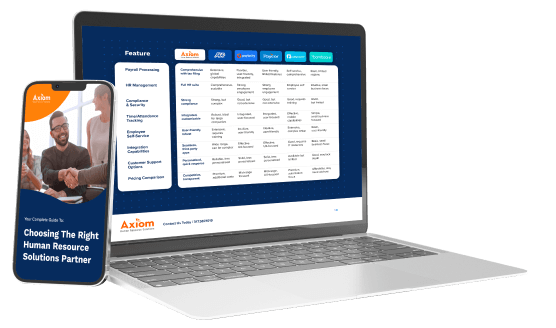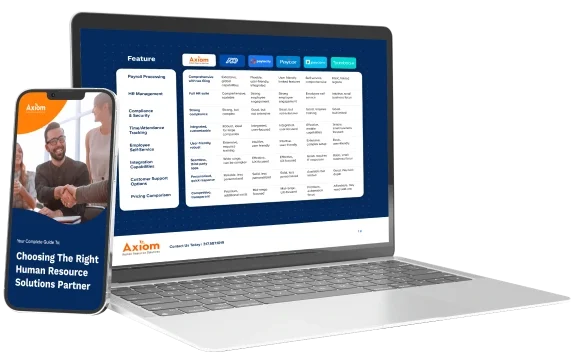
As businesses prepare for 2025, payroll regulations will once again be at the forefront of organizational priorities. With new regulations and technological advancements on the horizon, businesses must take a proactive approach to ensure their payroll systems are efficient, accurate, and fully compliant with upcoming changes. Here are some key trends and regulatory updates to expect, as well as tips on how to get ahead.
1. AI and Automation in Payroll Processing
One of the most significant trends for 2025 will be the continued rise of AI and automation in payroll processes. Automated systems are transforming the way companies handle everything from data entry to payroll tax calculations. With automation, companies can reduce manual errors, speed up processing times, and minimize the workload for payroll teams.
By 2025, it is expected that many businesses will have integrated AI-driven chatbots, allowing employees to instantly access payroll data such as pay stubs and tax withholdings. These tools are increasingly becoming essential for businesses looking to streamline payroll processes while improving employee satisfaction and reducing HR burdens.
2. Blockchain for Payroll Security
Another game-changing technology making its way into payroll is blockchain. By using decentralized ledgers, blockchain ensures that all payroll transactions are secure, transparent, and immutable. This means that any payroll data—once recorded—cannot be altered without authorization, providing additional protection against fraud and data tampering.
The potential for smart contracts within payroll is also an exciting development. These self-executing contracts can automate salary payments, tax withholdings, and benefits contributions. The use of blockchain and smart contracts not only ensures accuracy but also fosters trust between employers and employees.
3. Cloud-Based Payroll Systems
The trend towards cloud-based payroll solutions is accelerating, and for good reason. Cloud-based systems offer flexibility, scalability, and enhanced security. Payroll data can be accessed securely from any location, providing vital support for hybrid and remote work environments. Additionally, cloud systems integrate with payroll tax compliance features, ensuring companies stay up-to-date with the ever-evolving payroll regulations.
In 2025, more businesses will be relying on cloud-based platforms for their payroll operations, allowing for seamless updates and new feature rollouts without the need for costly infrastructure changes.
4. Changes to ACA Employer Shared Responsibility Payments
The IRS has updated the Employer Shared Responsibility (ESR) payment amounts for 2025 under the Affordable Care Act (ACA). Employers will now face penalties of $2,900 for not providing minimum essential coverage to full-time employees (down from $2,970 in 2024). This reduction in penalties underscores the importance of maintaining compliance with healthcare regulations, which directly impact payroll operations.
5. Big Data and Predictive Analytics in Payroll
As businesses amass more payroll data, the ability to leverage big data and predictive analytics is becoming a must. By analyzing historical payroll data, companies can forecast future labor costs, spot anomalies, and identify trends that may affect overall compensation structures.
In 2025, predictive analytics will play a pivotal role in optimizing payroll systems. It will allow businesses to plan more effectively, allocate resources wisely, and even identify potential payroll issues before they arise.
6. Global Payroll Compliance
For multinational companies, managing payroll across different jurisdictions is set to become even more complex by 2025. Businesses will need to navigate a variety of local regulations, including country-specific tax laws, benefits requirements, and wage standards.
The challenge of managing global payroll is compounded by the need for accurate currency conversions and adherence to local labor laws. Companies that operate internationally should invest in multi-country payroll platforms that can centralize payroll processes while ensuring compliance in each jurisdiction.
Preparing for 2025: A Checklist
To prepare for these upcoming changes, businesses should:
- Automate wherever possible: Use AI to streamline data entry, payroll calculations, and tax compliance.
- Invest in security: Consider implementing blockchain technology to safeguard payroll transactions.
- Migrate to the cloud: Ensure that your payroll system is cloud-based for maximum flexibility and security.
- Stay compliant: Keep updated with ACA changes and any other regulatory updates.
- Leverage data: Use predictive analytics to optimize payroll processes and forecast labor costs.
- Plan globally: For multinational businesses, ensure payroll platforms are equipped to handle multi-country compliance.
By adopting these strategies, businesses can ensure their payroll systems are ready for the changes ahead and remain competitive in 2025. Whether it’s leveraging automation, ensuring compliance, or adopting cutting-edge technology like blockchain, staying ahead of the curve will be key to payroll success.
Take Action Now with Axiom HRS
The year 2025 is set to bring significant changes to payroll management, from new technologies like AI and blockchain to evolving regulations and global compliance challenges. Businesses that stay ahead by modernizing their payroll processes will be best positioned to thrive.
To ensure your payroll systems are future-proof, it’s essential to start preparing now. At Axiom HRS, we offer comprehensive payroll and compliance solutions designed to help businesses of all sizes navigate these changes seamlessly. Whether you need to automate payroll processing, ensure compliance with ACA updates, or integrate global payroll solutions, Axiom HRS has the tools and expertise to support you every step of the way.
Don’t wait until 2025 to make the shift. Contact us today and see how we can help your business unlock efficiency, ensure compliance, and stay ahead of payroll trends.



